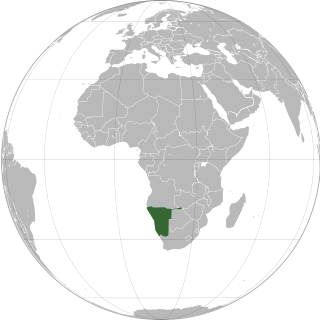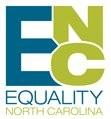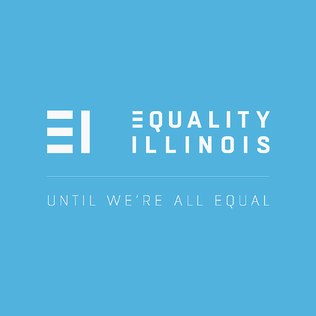
Lesbian, gay, bisexual, transgender and queer (LGBTQ) movements are social movements that advocate for LGBTQ people in society. Although there is not a primary or an overarching central organization that represents all LGBTQ people and their interests, numerous LGBT rights organizations are active worldwide. The first organization to promote LGBT rights was the Scientific-Humanitarian Committee, founded in 1897 in Berlin.
This is a list of notable events in the history of LGBT rights that took place in the year 1998.
This is a list of notable events in the history of LGBT rights that took place in the year 2002.
Same-sex marriage has been legal in South Africa since the Civil Union Act, 2006 came into force on 30 November 2006. The decision of the Constitutional Court in the case of Minister of Home Affairs v Fourie on 1 December 2005 extended the common-law definition of marriage to include same-sex spouses—as the Constitution of South Africa guarantees equal protection before the law to all citizens regardless of sexual orientation—and gave Parliament one year to rectify the inequality in the marriage statutes. On 14 November 2006, the National Assembly passed a law allowing same-sex couples to legally solemnise their union 229 to 41, which was subsequently approved by the National Council of Provinces on 28 November in a 36 to 11 vote, and the law came into effect two days later.

Egale Canada is a Canadian charity founded in 1986 by Les McAfee to advance equality for Canadian lesbian, gay, bisexual and transgender (LGBTQ) people and their families, across Canada.
The origin of the LGBT student movement can be linked to other activist movements from the mid-20th century in the United States. The Civil Rights Movement and Second-wave feminist movement were working towards equal rights for other minority groups in the United States. Though the student movement began a few years before the Stonewall riots, the riots helped to spur the student movement to take more action in the US. Despite this, the overall view of these gay liberation student organizations received minimal attention from contemporary LGBT historians. This oversight stems from the idea that the organizations were founded with haste as a result of the riots. Others historians argue that this group gives too much credit to groups that disagree with some of the basic principles of activist LGBT organizations.

Minister of Home Affairs and Another v Fourie and Another; Lesbian and Gay Equality Project and Others v Minister of Home Affairs and Others, [2005] ZACC 19, is a landmark decision of the Constitutional Court of South Africa in which the court ruled unanimously that same-sex couples have a constitutional right to marry. The judgment, authored by Justice Albie Sachs and delivered on 1 December 2005, gave Parliament one year to pass the necessary legislation. As a result, the Civil Union Act came into force on 30 November 2006, making South Africa the fifth country in the world to recognise same-sex marriage.

Lesbian, gay, bisexual, and transgender (LGBT) people in South Africa have the same legal rights as non-LGBT people. South Africa has a complex and diverse history regarding the human rights of LGBTQ people. The legal and social status of between 400,000 to over 2 million lesbian, gay, bisexual, transgender and intersex South Africans has been influenced by a combination of traditional South African morals, colonialism, and the lingering effects of apartheid and the human rights movement that contributed to its abolition.

Lesbian, gay, bisexual, and transgender (LGBT) rights in Namibia have expanded in the 21st century, although LGBT people still have limited legal protections. Namibia's colonial-era laws criminalising male homosexuality were historically unenforced, and were overturned by the country's High Court in 2024.

National Coalition for Gay and Lesbian Equality and Another v Minister of Justice and Others is a decision of the Constitutional Court of South Africa which struck down the laws prohibiting consensual sexual activities between men. Basing its decision on the Bill of Rights in the Constitution – and in particular its explicit prohibition of discrimination based on sexual orientation – the court unanimously ruled that the crime of sodomy, as well as various other related provisions of the criminal law, were unconstitutional and therefore invalid.

Equality NC(ENC) is the largest lesbian, gay, bisexual and transgender rights advocacy group and political lobbying organization in North Carolina and is the oldest statewide LGBTQ equality organization in the United States.
Immigration equality is a citizens' equal ability or right to immigrate their family members. It also applies to fair and equal execution of the laws and the rights of non-citizens regardless of nationality or where they are coming from. Immigration issues can also be an LGBT rights issue, as government recognition of same-sex relationships vary from country to country.

National Coalition for Gay and Lesbian Equality and Others v Minister of Home Affairs and Others, [1999] ZACC 17, is a 1999 decision of the Constitutional Court of South Africa which extended to same-sex partners the same benefits granted to spouses in the issuing of immigration permits. It was the first Constitutional Court case to deal with the recognition of same-sex partnerships, and also the first case in which a South African court adopted the remedy of "reading in" to correct an unconstitutional law. The case is of particular importance in the areas of civil procedure, immigration, and constitutional law and litigation.
Section Nine of the Constitution of South Africa guarantees equality before the law and freedom from discrimination to the people of South Africa. This equality right is the first right listed in the Bill of Rights. It prohibits both discrimination by the government and discrimination by private persons; however, it also allows for affirmative action to be taken to redress past unfair discrimination.
Section 20A of the Immorality Act, 1957, commonly known as the "men at a party" clause, was a South African law that criminalised all sexual acts between men that occurred in the presence of a third person. The section was enacted by the Immorality Amendment Act, 1969 and remained in force until it was found to be unconstitutional in 1998 by the Constitutional Court in the case of National Coalition for Gay and Lesbian Equality v Minister of Justice.
This is a timeline of notable events in the history of lesbian, gay, bisexual and transgender people in South Africa.

Equality Illinois (EI) was founded in 1991 to work towards building a better Illinois by advancing equal treatment and social justice through education, advocacy, and protection of the rights of the LGBTQ community.
This is a timeline of notable events in the history of non-heterosexual conforming people of African ancestry, who may identify as LGBTIQGNC, men who have sex with men, or related culturally specific identities. This timeline includes events both in Africa, the Americas and Europe and in the global African diaspora, as the histories are very deeply linked.
The Gay and Lesbian Organization of Witwatersrand (GLOW) was a non-governmental organization in South Africa that focused on gay and lesbian community issues.









